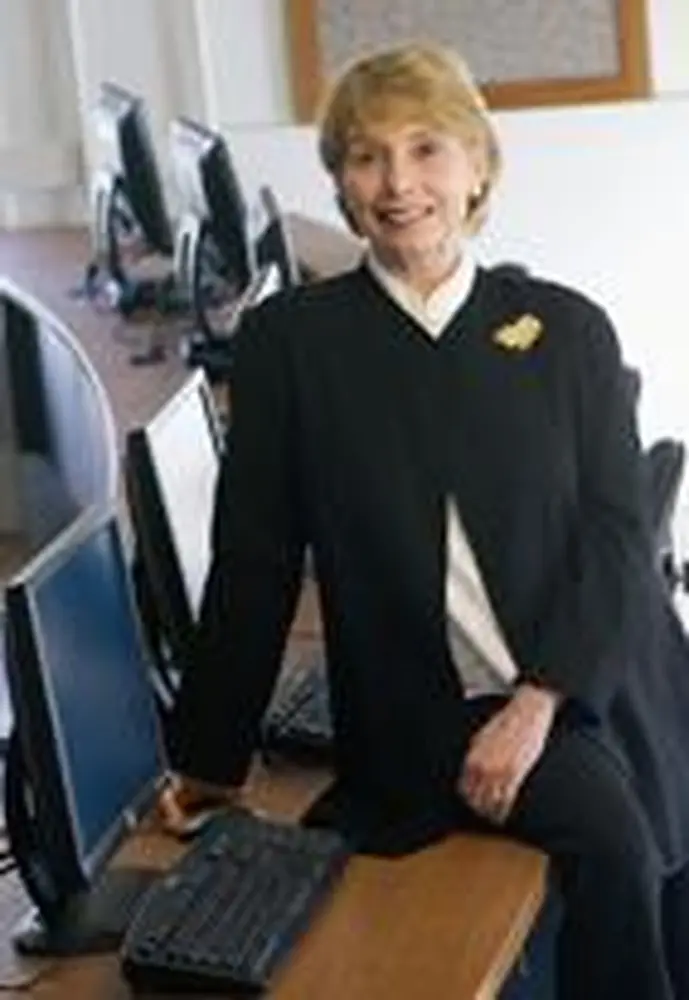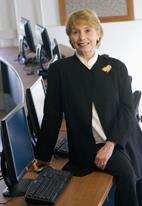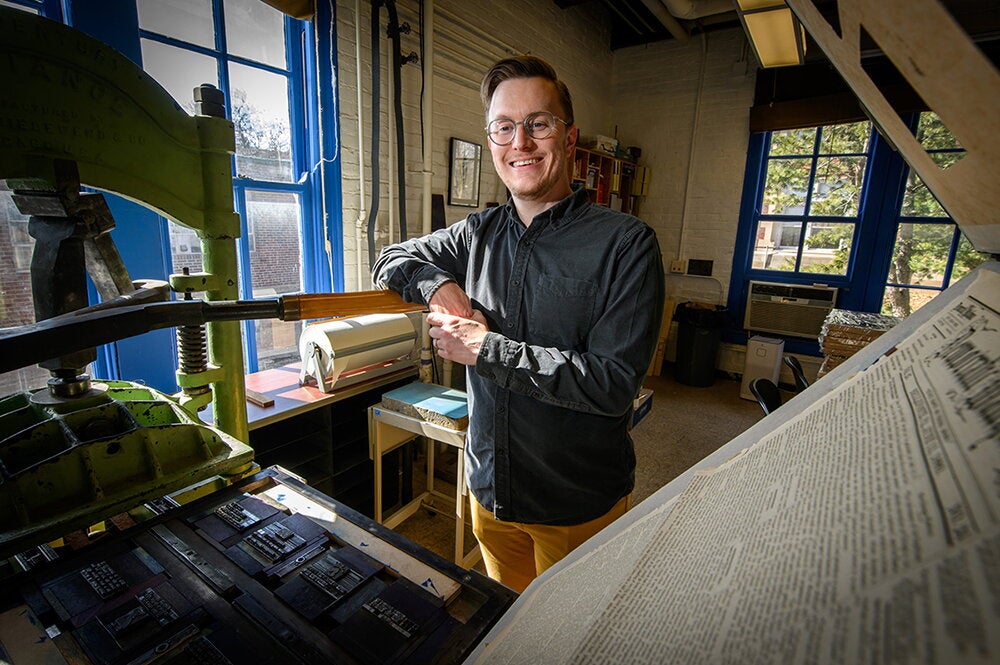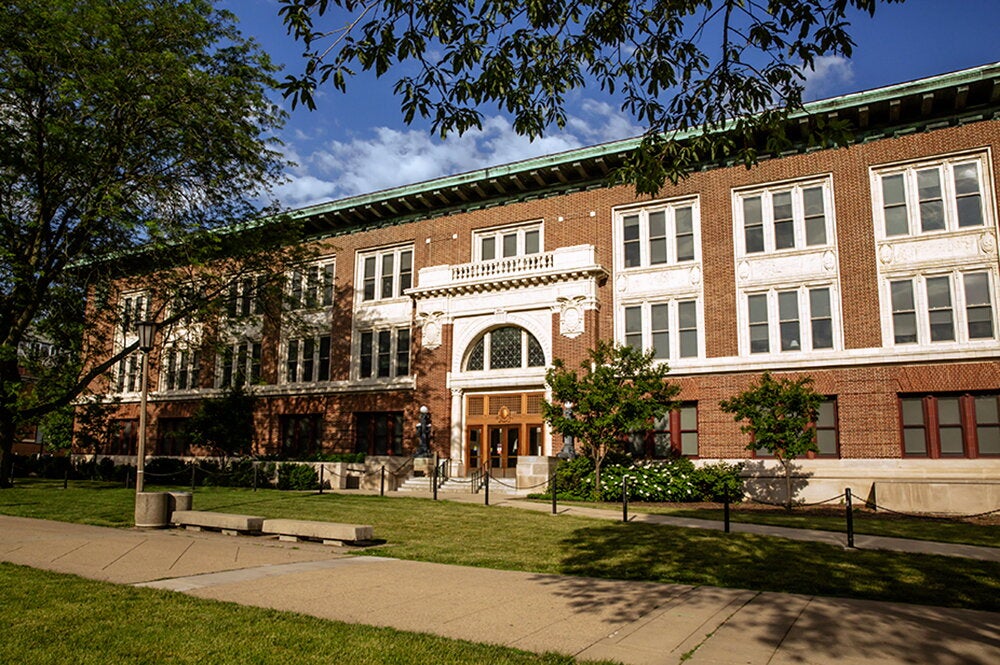

Recently, LAS English professor and director of the Center for Writing Studies Gail Hawisher sat down at her computer to type a departmental memo. Halfway through her task she was surprised to see that the tone she adopted for the message was wrong. As someone who has made a career studying the impact technology has on writing, Hawisher saw firsthand that what she had penned was more appropriate for an email communication, where the accepted style is an anything-goes mix of brevity and casualness instead of the more formal voice used in an official memo.
"Technology does change our processes to some degree," Hawisher says. "Writing has never been quite as simplistic as people believed it to be. When we sit down at the computer some people think that in it represents all these processes we have always gone through but never been quite as aware of. For example, we not only write, but we revise as we write. It's not that we always haven't done that, but the speed with which we write and our students write has changed dramatically."
Because of the Internet, Hawisher notes the writing process now includes the real-time ability to access online library databases, encyclopedias, dictionaries, journals and articles, and even the texts of books.
"Writing is a great way to prompt thoughts. We constantly retrieve information as we write. I don't think this is different from what we've done in the past except that we didn't then physically-through the software-access books and other articles that might provide us with that active information."
Students now come to the U. of I. with no experience of living in the pre-digital age of dial phones and typewriters. Instead, they are comfortable receiving and creating communications through email, podcasts, blogs, and other forms of multimedia. Hawisher, one of this year's Distinguished Teacher Scholars, says these new forms of technology actually contribute to more writing.
"More people are writing today" than ever before, she says. "You have adults doing email constantly, word processing has been around since the early 1980s, and young adults doing the IM-ing [instant messaging] and even text messaging. They are great multitaskers. This, of course, very much changes writing and it changes it for our students, too."
Still, is the overall quality of writing better?
Hawisher says, "No, I don't think it actually is at all. We used to think that students will revise a lot more, therefore their writing will be better. Sometimes students may revise more, their papers may be longer, but whether or not their papers are actually better, that's not generally the case.
"Also, because of the availability of spell checkers we no longer note among our students if they are bad spellers. We don't know that anymore. We hope that frees them up to work more on the content."
Hawisher adds that the easy access to research materials online has led to more plagiarism at the University among students. "Students don't always know that they can't just cut and paste the information that they find and then insert it into their text."
Still, the advantages of technology far outweigh the disadvantages, Hawisher says. "Each new tool that comes along changes the way we write. What we can do is put into the hands of our students [some] production tools. If we look back historically people weren't able, for example, to publish things. Not only can students publish, they can publish their work on the Web. They now have a much wider audience. In fact, some of our students may not even start out with word processing. Sometimes they'll start out with Power Point presentations and then they will build their text around the presentation's slides, rather than starting with pen to page."
Professors also use the same digital tools to teach writing. An electronic space online is often created for students to post and critique their work. Hawisher believes that online space is more conducive to increased class participation.
"By writing out their responses and reading others' responses I like to think that good learning occurs. And students who normally don't speak up in class will sometimes speak up online and they speak up by writing. The networked classroom seems to contribute to that somehow."
Hawisher's interests led her to the "Writing with Video" course developed by Joseph Squier, a professor of narrative media, and graduate student Maria Lovett, in the College of Fine and Applied Arts. The course allows students to explore video as a rhetorical medium using writing to conceptualize, solve problems, and process what they learn as they create documentaries and other video productions.
After observing the class last year and seeing how engaged students became with their projects, Hawisher formed a media group with several faculty members and graduate students from LAS's Department of English and Center for Writing Studies, and the College of Fine and Applied Arts, who met weekly to discuss successful strategies for teaching a "Writing with Video" course. The course was approved last November as a new advanced composition offering. Four courses are offered this fall.
"One of the things this does for students is that because they are so saturated with visual images they sort of take them for granted. So when they produce their own video in this class they will be better able to understand the rhetorical dimensions of videos and the role of the visual in society."
And, as Hawisher happily notes, the students will then resort to an age-old academic practice. They will write about it.


